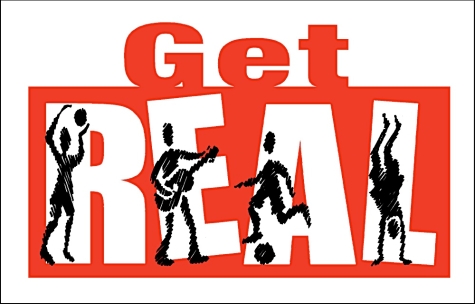Google: it’s time to get Real


In my previous post, I alluded to some of the issues that might prevent an average consumer -- "Joe Sixpack", John Q. Public, or Jane Doe from migrating to Linux on the desktop. One of them, without any doubt, is the lack of a way to integrate with Apple's iTunes service and play the DRM-restricted content downloaded from it on a Linux-based PC.
Let's face it, Apple has its users locked in big time. In order to download software from Apple's iTunes store, you have to use the iTunes application. In order to use the iTunes application and downloaded songs from that service with a portable device, you need to have an iPod or an iPhone. Do we see something wrong with this picture? Yes, I think we do.
Click on the "Read the rest of this entry" link below for more.
Fundamentally, I don't have a big problem with DRM, provided it is used is to protect the rights of the content producers and not to restrict the rights of legitimate consumers of that content. Music and other digital content which is sold on the Internet needs to be restricted to the purchasers of that content, and music artists, authors and movie studios have a right to be paid for their work, and it shouldn't be able to be freely copied to anyone who wants it unless the rights to that content is willingly released to somebody else. In other words, let's say I pay for download a song, a movie, or an ebook which I have unlimited rights to play, read or view. But if I want to give it away to my wife, my friend, or someone else, and release my rights to playing it on my device, as I would with giving a piece of physical media I have purchased to someone else, such as a CD, a DVD or a book, that should be possible as well.
Of course, with iTunes, there's no way you can do this, and you certainly can't play content purchased on Apple's service on your DVR, on your Blackberry, a Linux PC, or some other non-Apple or non-iTunes compatible device. At least not legally and not without going thru some sort of quasi-hackerish procedure involving decoding and re-encoding and incantation of various magic spells and ritual animal sacrifices.
But the iPod/iPhone and iTunes are the most popular digital content player products and online music services in the world. Short of legal action brought forth by the courts to require Apple to open up its APIs to iTunes, who exactly is going to provide an alternative?
Microsoft tried to provide an alternative to the iPod with the Zune. And we know how well that worked out. But as Master Yoda once said "There is another."
Much like I proposed that Amazon should abandon its own Kindle software platform with an "OpenKindle" and join forces with Google to create a "Kindroid", I think that Google should take its Android OS, partner with major consumer electronics manufacturers such as Sony, Samsung, LG and Toshiba, and create "DroidPlayers". In other words, the Google equivalent to the iPod Touch, but on Droid ‘Roids.
I envision a class of device in the $150 to $250 range, with a 32GB or 64GB flash drive or a 120GB hard disk, running Android and a color LCD touchscreen, with built-in Wi-fi, and a modified version of the stack running currently on T-Mobile's G1 optimized for playing digital media and games. And the secret weapon? Google goes out and buys RealNetworks to pair with it.
Yes, it sounds a little nutty -- but think about it. If Android is going to be a competitor to the iPhone and the iPod, Google needs to get into the online music and content sales business. With RealNetworks as part of the Google family, Android, Linux, Windows and Mac users -- as well as existing iPod owners -- would have access to the Rhapsody service, not to mention that Android would inherit the mature and Open Source Helix multimedia framework and all the Real codecs and RealPlayer, which already runs on Linux, Windows, the Mac, and a number of other mobile devices such as Nokia's webpads and also Symbian. So whatever music you've bought on Rhapsody -- now integrated with your online Google account -- would run on a potentially huge range of devices. All with Google's backing and financial stability. I can just see Apple's executive staff wetting their pants at the thought of Google taking direct aim at the iPod with a huge multivendor alliance and an invigorated Rhapsody service backed by a multibillion dollar company.
Google, are you listening? It's time to get Real. Networks, that is. Talk Back and Let me know.